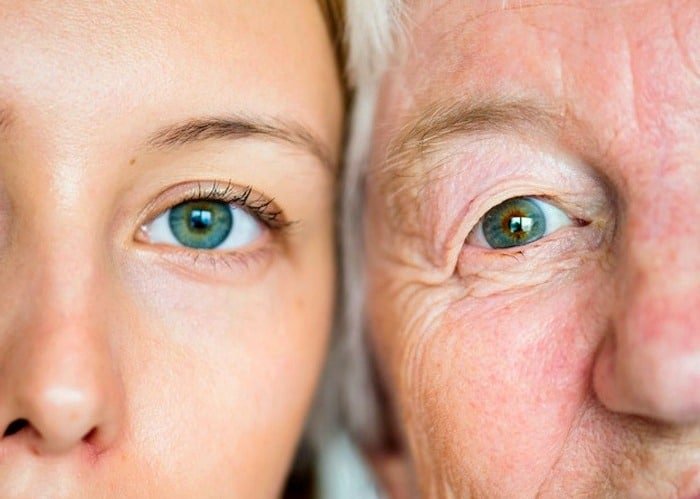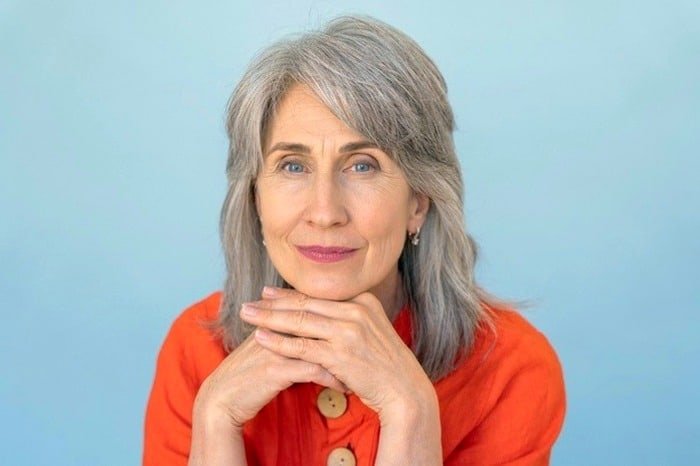At what age do we consider ourselves old?
Many of us think daily about how our age is constantly increasing and if we have reached the age of old age. Do we no longer fall into the category of young people? At what age are we considered old?
You may have a healthy body, but just because you have passed a certain age, you might think you belong to the elderly. That’s why it’s very important to know from what age you are considered old. In this section ofSelMagzeverything about this topic will be explained to you.
Everything about the aging process and age
Age is a topic that we cannot simply use as a measure for aging or being young. In fact, geography, physical health, and education can greatly influence a person’s youth or old age.
You cannot provide a generalized definition for aging without any change since conditions always play the biggest role. Sometimes you might ask yourself when we finally become old or if it truly matters if we are considered old just because we are healthy as we age.
In reality, age is a meaningless structure that many recognize as retirement age, meaning they consider age as a sign of old age or disability, which is incorrect. The question of when old age actually begins might also occupy your mind. Interestingly, many Iranians believe that age should not be seen as a number or as stated on an ID. In fact, there are other factors that can indicate a person’s true age.

Is retirement equal to old age?
A question many of you might ask is whether retirement is the same as being old. If we reach retirement age, should we accept that we are old? In some cultures, many equate aging or being old with retirement. They see retirement as a period when they can no longer perform many past activities or engage in adventures or recreational and sports activities.
Naturally, in the past, there weren’t many forms of entertainment for people, so they hadleisure timewith no specific activities to engage in. People lived their lives without special recreation until they fell ill, got injured in a war, or naturally passed away, and life would end that way. However, everything has changed today.
Lifespans have increased due to significant advancements in medical science. Just because your age increases doesn’t necessarily mean you will become sick.
In the era we live in, various healthy lifestyles, advanced medications, and many different methods exist to prevent diseases and extend life, but the common question remains, when do we actually get labeled as old?
Since we spend many years working and have healthier bodies than our parents, we first ask you: in this situation, how important is age really? In reality, age is a meaningless structure that cannot be compared to aging or be regarded as a reason for being old.
Retirement at age 70
According to reports from the Organisation for Economic Co-operation and Development (OECD) published in 2020, the average retirement age is 63.4 years for women and 64.2 years for men.
These reports indicate that the average remaining life expectancy after retirement is about 18.7 years for men (with a maximum of 24 years and a minimum of 11.5 years) and 22.8 years for women (with a maximum of 26.4 years and a minimum of 13.2 years).
In many parts of the world, increasing age is very important for individuals to apply for pension funds. Of course, while age 67 cannot be an unreasonable number, many choose retirement age as 70 years.
People’s perspectives are also very important; young people may see age and aging differently compared to others. Our perception of aging and age differs from what our families and parents understood. This discrepancy changes our view of aging.
Ultimately, the question remains: does age truly matter? We can analyze the issue from a professional perspective. Individuals who are older or elderly but continue working often focus on their social interactions and maintain quality work ethics, so age should certainly not be a concern for them.
Different ways to describe age
Several important factors can be mentioned to define the age of old age.
• Describing age temporally:
The simplest method is to evaluate age from a temporal aspect, which is precisely what we all use to show our age to others, including counting days, weeks, and years since birth. This is one of the most accurate methods to demonstrate how long we’ve lived. Many believe that older age equals chronic illnesses, which is especially incorrect in today’s world and should be seen as a one-dimensional measurement.

• Biologically:
This method can be assessed under specific factors. For instance, an individual’s daily activity level, lifestyle, and diet can indicate how old they are biologically. Generally, we consider quality and lifestyle when discussing biological age. It’s crucial to see how well the body has adapted to its living conditions. For example, a person might be young in age but due to hardships faced, their biological age may seem older, or vice versa.
• Socially:
Another criterion that can help us define age is assessing an individual’s habits and social behaviors over different periods. This includes observing how people react to social stimuli, which can also impact age perception.
Besides all the mentioned factors, the view on age, geographic conditions, health status, and education level can significantly influence perceptions of aging or youth. Certainly, in older societies, age was seen solely as a measure of aging or youth, but today considering conditions is very important.
The age of old age according to the World Health Organization
The World Health Organization has accepted that a specific number should be considered as the age of old age, which is currently proposed as being between 55 and 60 years. Many researchers believe this number lies between 45 and 65 years, indicating a broader age range.
What’s true, and what we observe in today’s society, is that there’s no fixed number or even a specific number range to generalize this issue, allowing us to say one person is younger or older than another.
According to recent reports by the Mercer Global Economic Forum, published in 2023, it was noted that 39% of those surveyed were considered elderly at age 70, while 37% could be considered old in their 80s, and 14% believed that age 60 could mark the beginning of old age.







